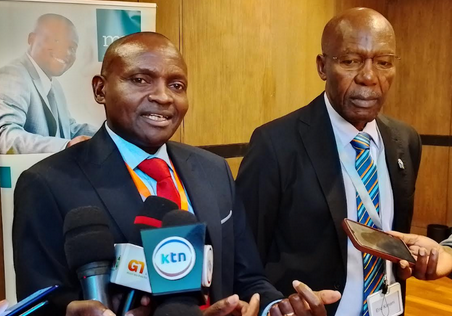

Businesses must conserve cash, reduce wastage and respond to change including partnerships and digitisation to survive the current tough operating environment in Kenya, experts now say.
This is in the wake of costly credit despite a drop in Central Bank of Kenya’s benchmark interest rate, which was last month revised downwards to a two-year low of 9.75 per cent to spur credit in the market.
However, commercial banks rates still remain high averaging 15 per cent.
A significant number of businesses, particularly small and medium enterprises (SMEs), are also facing challenges in accessing loans due to a combination of factors, including increased government borrowing and a shift in bank lending preferences towards government securities.
Kimani who is also the founder of Palmhouse Dairies and Palmhouse Foundation, added: “If you need to do restructuring do it humanly but the fact is cutting staff is not a solution.”
Mergers and partnerships have also been identified as “a way to the future”, with examples being given in sectors such as pharmaceutical and aviation.
The CEOs Survey and Market Perceptions Survey by CBK, conducted in May 2025, revealed sustained optimism about business activity and economic growth prospects for the next 12 months.
The optimism was attributed to the stable macroeconomic environment, improved agricultural production supported by favourable weather conditions and continued decline in interest rates.
Nevertheless, respondents expressed concerns about subdued consumer demand, high cost of doing business, and increased global uncertainties attributed to geopolitical and trade tensions.
MGK Consulting Founder and managing partner Michael Kimani also termed the regulatory environment challenging, mainly on the tax environment as government seeks to broaden the tax bad as it seeks to bring more taxpayers on board to meet its revenue targets.
“When you look at the kind of regulatory changes that we have seen, there are a lot tax changes and we still expect some more because we are looking at a fiscal deficit in government,” he noted, even as he called for regulatory compliance among the private sector and businesses.
“When I talk about regulatory compliance, it is as a risk mitigation to ensure that your business is taken care of, that you don't have failures down the lane, that you have huge and high tax exposures that as auditors, as a tax consultant, you are supposed to address them,” he said.
The MGK Consulting high-level forum themed: “Building financially sound and sustainable businesses in Kenya and the region” came as businesses grapple with mounting tax pressures, rising compliance demands and growing concerns over the long-term sustainability of SMEs.
Experts called for tax planning amid policy uncertainty, maintaining financial discipline in turbulent times and establishing credible, actionable financial performance reviews that can help businesses stay afloat and grow sustainably.
Kenyan SMEs face a multitude of risks, including inadequate access to finance, limited market access, poor infrastructure, rapid technological changes and a challenging regulatory environment.













